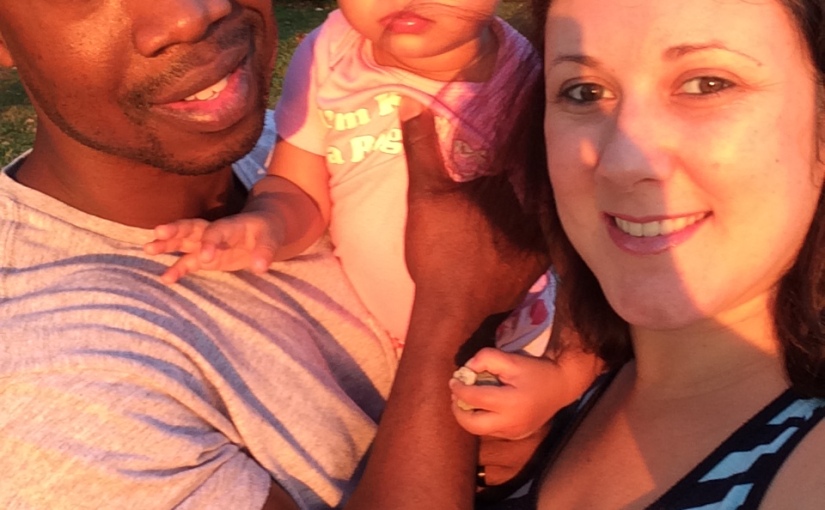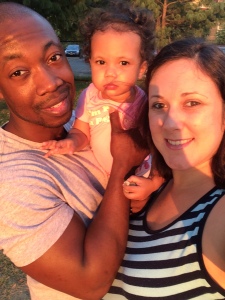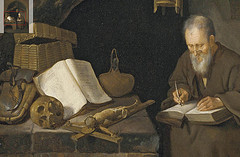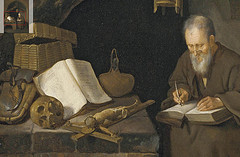More than project updates, more than new genres and upcoming publications, the greatest life force behind the huge community of inspiration and creativity that is Collaborative Writing Challenge comes from its owner and founder, Laura Callender. While she oftentimes takes the background in keeping the schedules moving, organizing and monitoring the lists of new writers, CWC veterans, and potential collaborators, she runs a tight ship from her laptop in New York. I’ve repeatedly been astounded by the amount of work and dedication this woman has freely given, from what I’ve seen in the last six months of working closely every day with her, and in the last year of CWC’s existence. We constantly discuss ways to move the Challenge forward, constructing campaigns and additions like the Author’s Spotlight page and the newly released CWC Short Story Competitions. However, I realized that the information revolving around CWC’s origins, not to mention the brilliant mind in which they incubated, have not been given nearly enough value in what makes CWC such an amazing challenge, and community, for writers literally across the globe. And I felt it was my duty to share with you a little glimpse into what CWC was created to be and why, not to mention how closely the organization has remained to its original vision.
Here is my interview with Laura Callender on what brought Collaborative Writing Challenge in creation.
When did you start writing, and on what topics did your work focus?
I actually started writing erotic fiction when I was in my late teens. I couldn’t tell you what propelled me to write that, but I would advise all writers to have a go. It was a challenge to try writing sex scenes in different ways and keep it fresh. I can’t say for sure I achieved it, but I definitely paid more attention to avoiding repetition, which is very important in a novel. I went on to write heaps of poetry, and I found that quite easy. A friend once asked me to help him with a film script he had started. That was very interesting, and I really enjoyed focusing on the dialogue and screen descriptions. I really would love to see something come of that one day. My current projects are children’s books, because I wanted something fun to read to my daughter. So my writing history has been pretty varied, and I love every aspect of writing and being creative.
What gave you the idea to start Collaborative Writing Challenge?
I joined a writing website about ten years ago, and a few of us used to give each other writing challenges. I found that some of my best short stories and poems came from those prompts. I was struggling to get past one or two chapters of my own stories, and started to think about how it could work if you were continuously prompted throughout a novel-length story. The idea took many years before it fermented into CWC, but I’m so glad it did. The process works better than even I had imagined, and I truly believe the process removes the predictability and monotonous issues you find with some novels. My husband will attest to the fact that I almost always guess what’s going to happen next in a film, or guess the end of a book, but I can honestly say that I am never able to predict the chapters I receive from CWC writers. Now that’s refreshing!
Sometimes projects like these can be a “chicken or the egg” scenario. So what came first, writers who needed a collaborative project, or the collaborative project that needed writers?
Most definitely the collaborative project that needed writers. It was a case of the idea making sense in my head, but there really was zero demand for it. Traditionally, collaborating on a full-length novel requires finding a writing partner and going for it. That is done, and easy to find, but I wanted to show writers a different way, a new way of collaborating that allowed writers to retain their creative freedom yet still become part of a published novel. Our process not only has a beginning, middle and an end, but it has a schedule that so far has proven the test of time. Just knowing that the project will complete is very exciting, and something to look forward to. Traditional collaborations risk conflict and dwindling away when people become busy or find the story taxing. We take away the sluggish aspect of writing and keep our writers engaged and ready to explode with ideas!
What is your favorite aspect of CWC?
Wow, that must be the hardest question, as each week I find something new to love about what we are doing. I have made some wonderful friends through starting this project, and now I have set up a dedicated Facebook group for CWC authors. I love seeing their personal interactions. I think bringing people with similar interests together is a very humbling feeling. I’ve written references for some writers, I’ve been told that I helped someone find more writing work, etc., and I’m blown away by that. I’m very big on promoting our participants and giving everyone a great platform on which to build their own writing careers. I know I love CWC and the books we produce; it’s branded on my heart and I don’t think I’ve ever been so passionate about something. But when others tell me how excited they are by participating, it just makes me feel incredible. I also love the uniqueness of CWC. I think we really are reinventing the wheel, so to speak. Our books will be controversial, and I don’t doubt they will receive some harsh criticism within the industry, but as long as they are an enjoyable read, we’re doing something right. I’ve always been a rule breaker!
What are you most excited about a) in CWC’s current process, and b) for CWC’s future?
I really am excited about promoting the books we produce and getting them out there. I’m always looking for ways to refine what I already do. I’m learning more about how to make great book covers, different programs, etc., and different tools for book formatting. While it would be great to be able to delegate these tasks to professionals one day, it’s been fun for me to learn new things that I never even thought about when I first started CWC. If I’m totally honest, I guess something I look forward to is having a well-known author involved in a project who really enjoys the challenge. That would really make my day!
Writers are often told to edit, edit, and re-edit before publishing. How do you manage to get the books published so soon after the project finishes?
Each project takes roughly 8 months to complete. Each week we receive chapters and once one is chosen, it gets a thorough consistency edit there and then. As the story builds, I go back and tweak chapters to consolidate any new information. This is often done with a simple line or added conversation, and never impacts the integrity of the writer’s chapter. Once the entire project is finished, I conduct a thorough consistency edit, tying up any loose ends and checking that each plot line flows to completion. This is essentially what a writer does with a first draft of their own manuscript. This can be a very long process for a writers, as often they haven’t reviewed their early chapters for a considerable length of time. For CWC novels, that process is ongoing, and having an objective Story Coordinator allows the writer their freedom to create while the coordinator monitors the story. It’s very harmonious. Once the consistency edit is done, the story is sent off to an editor, who tidies up the spelling and grammar issues, and acts as that final filter. We seemed to have created a wonderful process, and the term ‘collaborating’ doesn’t just encompass what the writers do. Our projects are a very big team effort from start to finish.
What is the greatest obstacle you’ve had to overcome in maintaining CWC as a successful group project for almost an entire year?
Without generalizing, which is something I loath to do, I find writers can be very flakey at times. But it is understandable. Some writers commit to a project months in advance, then when it’s their time to write, ‘life happens’. When I started ‘The Concierge’, I only had two writers submitting chapters each week. I had the odd week no one submitted, but I had some very enthusiastic writers I could turn to to complete a chapter within 48 hours. That’s when I realized three or four participants per chapter would make more sense, and was also reminded how quickly you can write 1500 – 2000 words. I now have faith that if I sent out a request to all the writers, someone would stick their hand up. I think one of the most important lessons I’ve learned is that I started something that has required people to rely on me. I can’t be flakey, or have a bad week; I have to remain focused on moving the story forward no matter what. Believe me, I have had some ups and downs, but as long as you have a committed Coordinator involved with each project, most obstacles can be overcome.
How does organizing CWC and working with other writers affect your own motivation and love of writing?
The honest answer to this is it has annihilated my own writing, and reading. I spend every spare moment I have, when not chasing around after my toddler, doing work to keep on top on everything. Working on a computer all day can be very mentally draining, so when I do step away, I like to go for walks, or cook, or do something that gets me moving. When I do start writing something, usually late at night, I find my writing has greatly improved. I have learned so much from all our CWC participants and editors, I feel like a sponge. I hope that when life settles down a bit for me, after baby number two arrives later this year and I leave the story coordinating aspect of CWC to my colleagues, I will pick up some of my old scribblings and get back to business. It is still my dream to see my own novel published, but I’m not in a hurry. I believe things happen the way they are meant to.
Where do you hope to see this collaborative community in the upcoming year?
At the moment, the demand is steadily growing. It’s a tricky situation. I don’t want to start too many projects, as I think it would be unwise to publish too many books within a year. But at the same time, I want everyone to experience the fun of participating in a CWC challenge. The likely scenario will see an increase in writers per chapter. Not only will this accommodate the interest, but it will actually increase the integrity of the story. The more options we have per chapter, the more likely it is the story will be the best it can be. I would also really like to see CWC enter NaNoWriMo at some point. Perhaps in the next year or two. I have a very nice plan laid out; it just requires a bit more time to prepare for it. But it’s something I’m really looking forward to.
If you could have absolutely anything given to you today for CWC, what would it be?
The obvious answer here is money, then I could do so much! However, it would be a marketing expert that is as passionate about CWC as I am. When authors get signed by a big publishing house, they not only get to see their masterpiece become a physical entity, something they can read and proudly show off, but they get access to the best possible marketing of that book, which is what makes it accessible to readers. I would love to see a CWC poster in an underground station, advertising our latest book, or plastered across a billboard. Those things cost more than money; they require connections and people who can make it happen. I’m always on the lookout for great people to work with to drive CWC into the spotlight.




